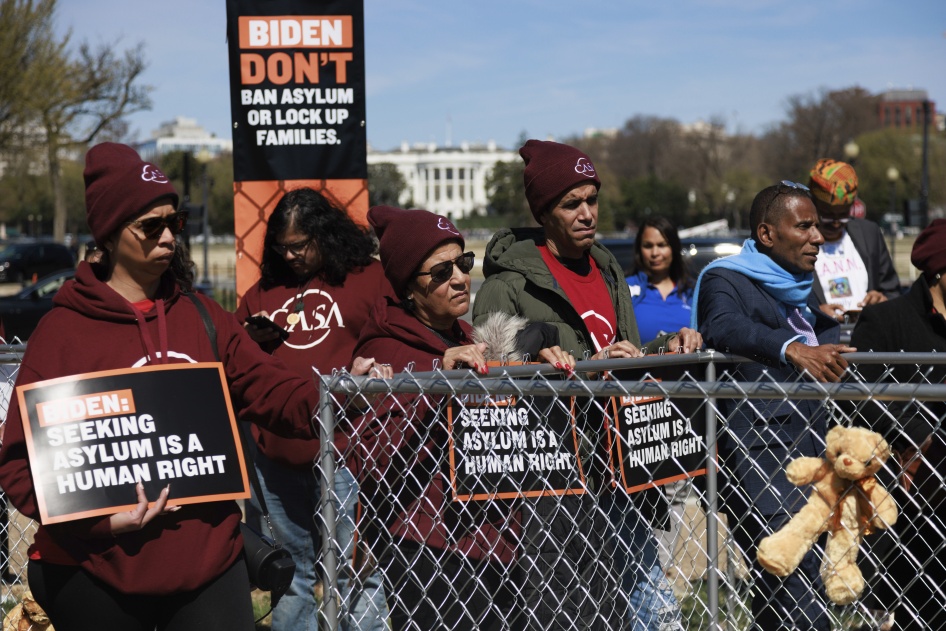Given all the political grandstanding in this presidential election year, it is hard to take at face value the various, deeply flawed proposals that could drastically obstruct the long-standing, legally protected right to seek asylum in the United States.
But it remains important not to lose sight of the principles at stake.
The right to seek asylum from persecution is enshrined in the Universal Declaration of Human Rights and is a right US immigration law has long upheld. This guarantees that anyone may apply for asylum upon entry “whether or not at a designated port of arrival” or from within the United States, “irrespective of such alien’s status.”
But that hasn’t stopped politicians on both sides from floating proposals at odds with these well-established principles. Without hearings or any transparency about such consequential changes in US asylum law, congressional negotiators have treated this right as a bargaining chip in negotiations over funding for Ukraine, Israel, and other foreign policy matters.
Just when a group of Senate negotiators appeared on the brink of agreeing to a deal that would raise the asylum screening standard, among other restrictive measures, former President Donald Trump sought to put the kibosh on the whole thing, saying there was “zero chance” he would support the legislation.
That prompted chest thumping from President Joe Biden, who said the deal would provide him the authority to "shut down the border" when the average number of daily migrant crossings hits 5,000 over a 7-day period.
Bashing the right to seek asylum is now a slab of red meat both presumptive candidates seem willing if not eager to throw into the 2024 presidential race.
But it is precisely during what are called “mass influxes” that the right to seek asylum most needs to be adhered to. The UN General Assembly adopted the Universal Declaration of Human Rights in 1948 not only to prevent the recurrence of the atrocities of World War II, but also to ensure that the pushbacks of refugees trying to escape the Holocaust would never happen again.
No country is happy about hosting major refugee influxes, but meeting responsibilities is less a matter of choice than of duty. Like it or not, capping the number of asylum seekers at a certain number and then closing the border to the next person fleeing persecution is not an option a responsible government can take.








